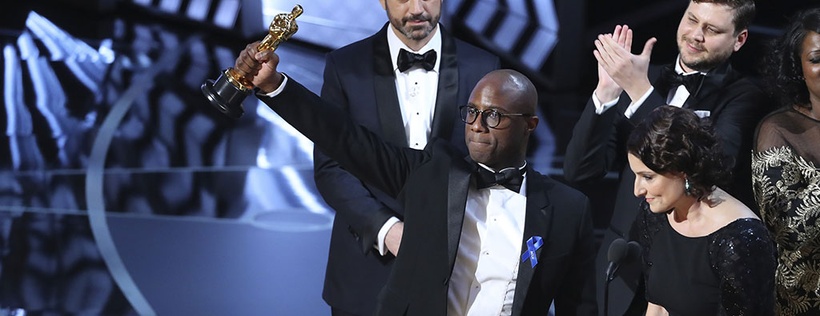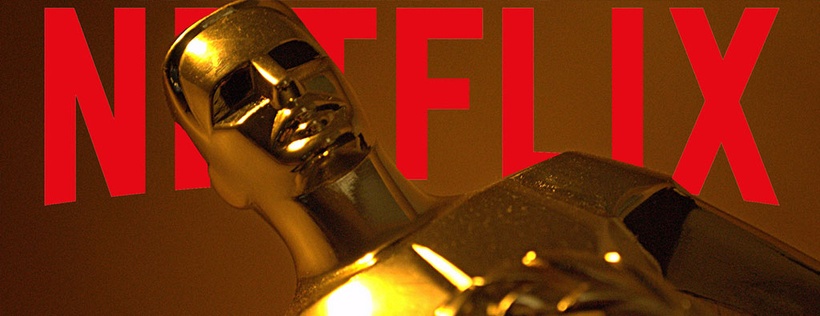
Do the Oscars Even Matter?
By Brian Eggert | April 21, 2021
Every year, I grapple with the Academy Awards and their significance. On the one hand, awards season is my favorite time of year. Everyone seems interested in the movies, and that’s infectious. People who don’t spend their entire year seeing and talking about new releases seek out the nominees. They watch movies they might not have watched otherwise if only to be part of the conversation that people like me are having all year long. Debates about who deserves to win, who was nominated, and why, and what the nominees say about our culture, also permeate the media and water cooler talk. Movies are in the air, and I love that.
Still, the importance of the Oscars remains something I vacillate about. How much stock should one put into their legacy and canonization of film history? Are the Oscars truly a reflection of the best in film for a given year, or are they more about Hollywood congratulating and promoting itself with a night of glamor? And why should we care about who wins when, given enough time, their choices prove obsolete?
Pick a year, any year, and you can question whether the Academy got it right. You might note that the Academy never gave Alfred Hitchcock or Stanley Kubrick an Oscar for Best Director. How can this be? And there are overlooked titles that now stand as indisputable classics, whereas the winners of, say, the Best Picture statue remain largely forgotten. Citizen Kane, often cited as the best film ever made, lost the Best Picture category to How Green was My Valley. Driving Miss Daisy won over Do the Right Thing. The King’s Speech stole the statue from The Social Network. Around the World in 80 Days and The Greatest Show on Earth won Best Picture. But who talks about these winning films anymore?
This says nothing of the Academy of Motion Picture Arts and Sciences’ predominance of white male voters. After the social justice campaign #OscarsSoWhite debuted in 2015 and created awareness around the Academy’s lack of diversity, steps were taken to better address gender and racial disparities among their membership. Necessary discussions about who’s voting for the winners in the past few years have helped change the narrative about the Oscars and their canon. Since then, the results have been mixed, even as the Academy has taken steps to diversify and modernize its membership policies.

Again looking at the Best Picture winners: Moonlight and The Shape of Water, two indie films about feelings of Otherness, took home the Best Picture statues in 2017 and 2018, respectively, showing steps in the right direction. Green Book, a film that presents a discussion about race in America with safe, pandering commercialism, took the Academy a step back when it won Best Picture in 2019. Voters once again made progress by naming the South Korean masterpiece Parasite as the Best Picture last year, in an unprecedented choice that gave a non-English film the award for the first time.
Even so, there’s still a troubling lack of inclusion for women directors and stories about people of color. But through the lens of inclusivity, the Academy is taking baby steps. The 93rd Academy Awards ceremony in 2021 might be the first year in my life so far where only two of the nominated directors are white men. There are many such firsts among this year’s nominees, which show the Academy making progress.
Of course, the Oscars have always had some caveat for film fans to consider next to the awards and nominees. Contemporary political and economic motivations drive voters each year, making the winners less about artistic appreciation and more about making a statement for the times. Some considered Green Book’s win as the conservative old guard of Hollywood voting for a traditional story over something defiantly modern from that year, such as Spike Lee’s BlacKkKlansman. As much as Hollywood is often mislabeled as a den of liberals, for financial reasons, Hollywood also resists becoming too radical to avoid alienating a portion of the ticket-buying or VOD-renting audience. It’s sound marketing to appeal to the largest possible audience to earn a larger take at the box office, and so Hollywood often tries to appeal to the middle.
Then there’s the promotional side of things. Very often it’s not about acknowledging the best film or performance but falling prey to an aggressive “for your consideration” campaign to draw voters’ attention. Harvey Weinstein, among others, was one of the fiercest Oscar campaigners in the late 1990s before his recent conviction for rape and sex crimes. His promotional efforts fuelled Oscar upsets such as Shakespeare in Love’s victory over the favorite Saving Private Ryan in the 1999 Best Picture race. Studios invest in campaigns for their properties because it creates awareness about the studio’s brand and output. For years, Miramax was synonymous with Oscar season because of Weinstein’s campaigning. The Miramax logo was, for a time anyway, a symbol of Oscar-worthiness. Now it’s a symbol of Hollywood’s willingness to suppress and exploit in the name of the business.
 If there’s a modern equivalent to Miramax’s zealous campaigns from twenty years ago, it has to be Netflix, which has saturated online advertising, billboards, talk shows, and magazines with ads to promote their Oscar-nominated features. No wonder titles such as Mank, The Trial of the Chicago 7, Ma Rainey’s Black Bottom, and Pieces of a Woman helped Netflix become the studio to receive the most nominations this year.
If there’s a modern equivalent to Miramax’s zealous campaigns from twenty years ago, it has to be Netflix, which has saturated online advertising, billboards, talk shows, and magazines with ads to promote their Oscar-nominated features. No wonder titles such as Mank, The Trial of the Chicago 7, Ma Rainey’s Black Bottom, and Pieces of a Woman helped Netflix become the studio to receive the most nominations this year.
An awareness of these political and economic motivations behind the nominating and awarding process, along with the ongoing debate about the Academy’s historical lack of diversity, has led to a stain on the Academy’s reputation. Viewership of the ceremony itself has continued to decline over the years. And movie viewership continues to fragment away from the theatrical distribution model into countless streaming options, which means it’s more difficult for viewers to find nominated films, thus it’s challenging for a single film to reach the zeitgeist and compel universal interest.
Maybe it’s because the COVID-19 pandemic had led to decreased theatrical attendance, but the buzz around the 2021 ceremony seems lower than ever. Despite the Academy’s leaps of inclusion, the audience no longer universally knows where to find the nominated films. Are they on Netflix, HBOMax, or Hulu? Can they be rented for $20 under the PVOD model? AMC’s traditional “Best Picture Showcase” of back-to-back screenings of the Best Picture nominees isn’t happening this year because of the coronavirus, not that Netflix titles would have been included given the streamer’s minimization of theatrical distribution. There’s no single source to find the nominees, which has an impact on the audience’s willingness to engage in the Oscars. Movie people know where to look to see these titles, but the general audience seems disconnected. Maybe the fragmentation of movies is a symptom of how our culture has fragmented.
The question of whether the Oscars matter remains. They certainly cannot be viewed as the ultimate canon or source of quality, just as popular “best” lists from the American Film Institute and Sight & Sound have omissions and snubs that continue to spark debate. Any awards ceremony or list is bound to leave something out, which brings into question the entire idea of canonization.
Still, the Oscars matter to the movie industry because they support the business and egos of those involved. They’re devices used to acknowledge successful careers, such as when someone wins an Oscar because “it was their time” and not necessarily because it was the best movie or best performance. Historically, the awards are a reflection of what was happening at the time, requiring one to consider not just the nominees and winners but the contributing factors to how those titles might have been selected. There’s an entire story behind every year’s nominees and how they were chosen, and very rarely does it have anything to do with pure artistic merit.
Even so, I think that debate is vital to the discourse about film. It’s not so much about establishing the correct criteria for how the best films ever made should be selected and awarded. It’s about using these attempts at creating an exemplar as a platform to work against, a springboard for a healthy conversation about movies. It’s not the awards themselves that I love; it’s the conversations I have about what won and what should’ve won. Year after year, the Oscar winners become arbitrary choices next to how they encourage people to celebrate the movies in their own way.
(Note: This piece was originally posted on Patreon.)
Unlock More from Deep Focus Review
To keep Deep Focus Review independent, I rely on the generous support of readers like you. By joining our Patreon community or making a one-time donation, you’ll help cover site maintenance and research materials so I can focus on creating more movie reviews and critical analysis. Patrons receive early access to reviews and essays, plus a closer connection to a community of fellow film lovers. If you value my work, please consider supporting DFR on Patreon or show your support in other ways.
Thank you for your readership!
Brian Eggert | Critic, Founder
Deep Focus Review




